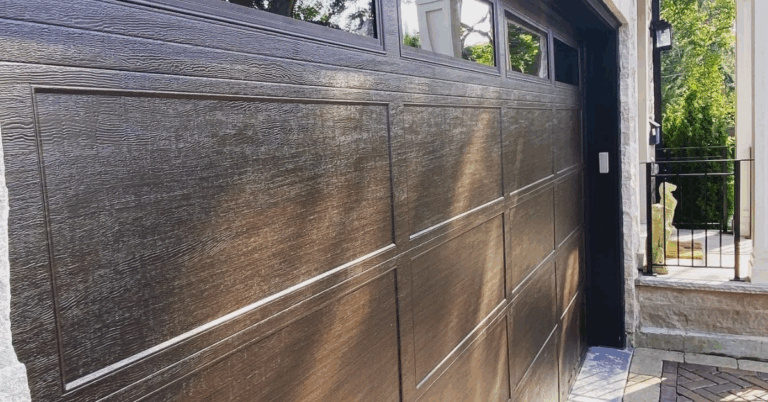I’m Unable to Pay My Mortgage and Need Someone to Help: A Guide to Regaining Control
For many homeowners, falling behind on mortgage payments can feel overwhelming. Whether due to job loss, medical emergencies, divorce, or other unexpected hardships, the fear of losing your home is real and valid. If you’re currently thinking, “I’M Unable To Pay My Mortgage And Need Someone To Help,” know that you are not alone—and more importantly, help is available.
This guide will walk you through the practical steps you can take, who you can reach out to, and how to navigate this difficult period with clarity and confidence.
1. Understanding the Gravity of the Situation
Missing a single mortgage payment doesn’t necessarily mean foreclosure is around the corner, but repeated missed payments can lead to serious consequences. Here’s how most lenders typically operate:
15-day grace period: Most lenders allow a 15-day grace period after the due date without penalty.
Late fees: After the grace period, late fees usually apply.
30+ days late: The loan becomes delinquent and is reported to credit bureaus.
90+ days late: You may receive a Notice of Default or be placed into pre-foreclosure.
Recognizing where you stand in this timeline helps determine your next move.
2. Communicate With Your Lender Immediately
The worst thing you can do is ignore the problem. Lenders are often more willing to work with homeowners than you might expect—after all, they don’t want to foreclose if they can avoid it. As soon as you know you’re going to miss a payment:
Call your mortgage servicer.
Explain your situation honestly.
Ask about hardship options.
Lenders may offer several relief solutions, including:
Forbearance: Temporary suspension or reduction of payments.
Loan modification: Changing the terms of your loan to make it more affordable.
Repayment plan: Gradually making up missed payments.
Refinancing: Getting a new mortgage with better terms (if you qualify).
3. Seek Professional Help
It’s perfectly okay to say, “I can’t do this alone.” Thankfully, many non-profit and government resources are available.
Non-Profit Housing Counselors
HUD-approved housing counselors are trained to help homeowners avoid foreclosure—for free. They can:
Review your finances.
Help you communicate with your lender.
Assist with applications for relief programs.
Offer budgeting support.
To find one, visit www.hud.gov/housingcounseling or call 1-800-569-4287.
Legal Aid Services
If your situation involves legal complexities—like bankruptcy, disability, or divorce—contact legal aid organizations or attorneys that specialize in foreclosure defense.
Local and State Housing Agencies
Many states offer mortgage assistance programs, especially in light of emergencies like COVID-19 or natural disasters. These can include:
Emergency mortgage assistance funds
Property tax relief
Utility payment assistance
4. Explore Government Relief Programs
Various programs are designed to support homeowners in crisis. These include:
Homeowner Assistance Fund (HAF)
Established during the COVID-19 pandemic, HAF provides financial assistance to eligible homeowners. Funds may cover:
Mortgage payments
Property taxes
Utilities
Homeowner association fees
Check eligibility through your state housing agency.
Making Home Affordable Program (MHA)
Though MHA officially ended in 2016, some elements remain active, such as:
HAMP (Home Affordable Modification Program): Modify your loan for reduced payments.
HAFA (Home Affordable Foreclosure Alternatives): Assistance for short sales and deed-in-lieu transactions.
FHA, VA, and USDA Options
If you have a government-backed loan, additional relief options exist:
FHA Special Forbearance
VA Disaster Relief Options
USDA Loan Payment Assistance
Contact your loan servicer or visit the official agency websites.
5. Create a Financial Recovery Plan
Once you’ve spoken with your lender or counselor, develop a roadmap to financial stability:
List all sources of income.
Prioritize essential expenses (housing, food, utilities).
Cut unnecessary spending.
Start a crisis budget.
Apps like Mint or You Need A Budget (YNAB) can help you visualize your cash flow and identify savings.
6. Consider Alternative Solutions
If keeping your home isn’t viable in the long term, these alternatives can help you avoid foreclosure with dignity:
Sell Your Home
If you have equity, selling the home may allow you to pay off the mortgage and move forward. Consult a real estate professional to explore this.
Short Sale
If your mortgage balance exceeds the home’s value, your lender may agree to a short sale—accepting less than what’s owed to avoid foreclosure.
Deed in Lieu of Foreclosure
You voluntarily transfer ownership back to the lender, potentially avoiding foreclosure on your credit report.
7. Protect Your Credit and Emotional Well-being
While financial setbacks can hurt your credit score, rebuilding is possible:
Make payments on time moving forward.
Use secured credit cards or credit-builder loans.
Check your credit report regularly.
At the same time, don’t underestimate the emotional toll. Reach out to support groups, mental health professionals, or community programs if you’re feeling overwhelmed or anxious.
8. Scams to Avoid
Unfortunately, many scammers target vulnerable homeowners. Watch out for:
Companies demanding upfront fees for mortgage help.
“Rescue” programs promising to stop foreclosure instantly.
Anyone asking you to sign over your home’s deed.
Only work with HUD-approved counselors or certified legal professionals.
Frequently Asked Questions (FAQ)
Q1: What happens if I miss a single mortgage payment?
Most lenders offer a 15-day grace period. After that, late fees may apply, and your credit score could be affected. However, missing one payment doesn’t immediately trigger foreclosure.
Q2: Can I get help even if I’m already behind on payments?
Yes. Many lenders are more willing to help when you’re honest and proactive. Government programs and HUD-approved counselors are available to support you—even if you’re months behind.
Q3: What is forbearance and how does it work?
Forbearance temporarily pauses or reduces your mortgage payments. You’ll still owe the money, but you won’t face penalties during the agreed period. After forbearance, you may repay in a lump sum, through a repayment plan, or modify the loan.
Q4: Will I lose my home if I can’t pay the mortgage?
Not necessarily. Foreclosure is often the last resort. If you take action quickly, you may qualify for relief options or alternative solutions like selling the home or negotiating a deed-in-lieu.
Q5: Where can I find free help?
Start with HUD-approved housing counselors by visiting hud.gov or calling 1-800-569-4287. Many nonprofits and local government programs offer free or low-cost support as well.
Q6: What are my options if I have no income at all?
Even with zero income, you may qualify for forbearance, housing aid, or local emergency funds. Contact your loan servicer and a housing counselor immediately to discuss your situation.
Q7: Can bankruptcy stop foreclosure?
In some cases, yes. Filing for Chapter 13 or Chapter 7 bankruptcy can delay or stop foreclosure temporarily. However, this is a major legal step and should only be taken after consulting with a bankruptcy attorney.
Final Thoughts
Saying “I’m unable to pay my mortgage and need someone to help” takes courage—but it’s the first step toward a solution. Remember, you don’t have to go through this alone. There are professionals, programs, and people who care about your well-being and are ready to guide you through it.
By acting quickly, staying informed, and seeking the right help, you can protect your home, rebuild your finances, and come out stronger on the other side.






